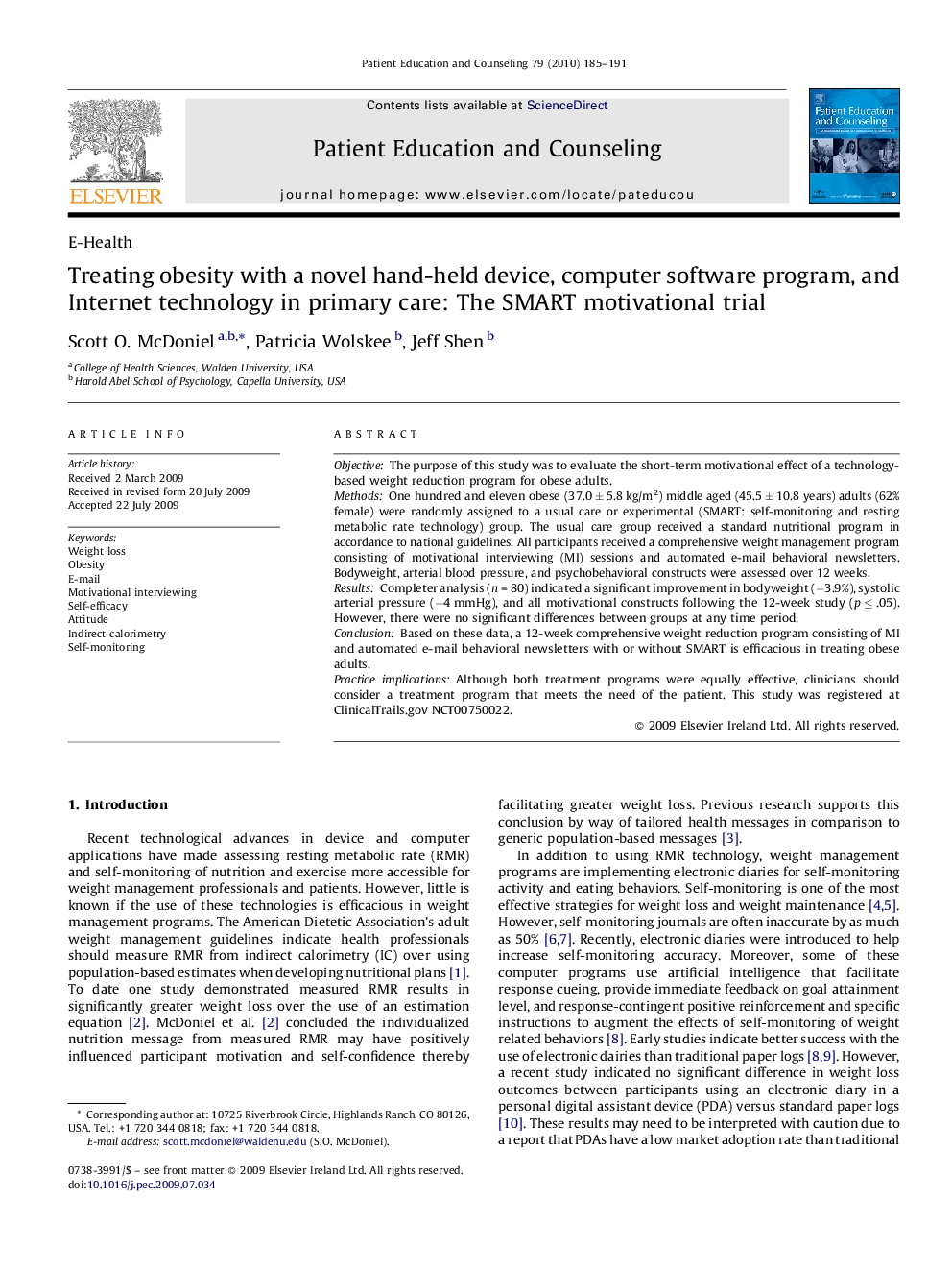| Article ID | Journal | Published Year | Pages | File Type |
|---|---|---|---|---|
| 3813847 | Patient Education and Counseling | 2010 | 7 Pages |
ObjectiveThe purpose of this study was to evaluate the short-term motivational effect of a technology-based weight reduction program for obese adults.MethodsOne hundred and eleven obese (37.0 ± 5.8 kg/m2) middle aged (45.5 ± 10.8 years) adults (62% female) were randomly assigned to a usual care or experimental (SMART: self-monitoring and resting metabolic rate technology) group. The usual care group received a standard nutritional program in accordance to national guidelines. All participants received a comprehensive weight management program consisting of motivational interviewing (MI) sessions and automated e-mail behavioral newsletters. Bodyweight, arterial blood pressure, and psychobehavioral constructs were assessed over 12 weeks.ResultsCompleter analysis (n = 80) indicated a significant improvement in bodyweight (−3.9%), systolic arterial pressure (−4 mmHg), and all motivational constructs following the 12-week study (p ≤ .05). However, there were no significant differences between groups at any time period.ConclusionBased on these data, a 12-week comprehensive weight reduction program consisting of MI and automated e-mail behavioral newsletters with or without SMART is efficacious in treating obese adults.Practice implicationsAlthough both treatment programs were equally effective, clinicians should consider a treatment program that meets the need of the patient. This study was registered at ClinicalTrails.gov NCT00750022.
